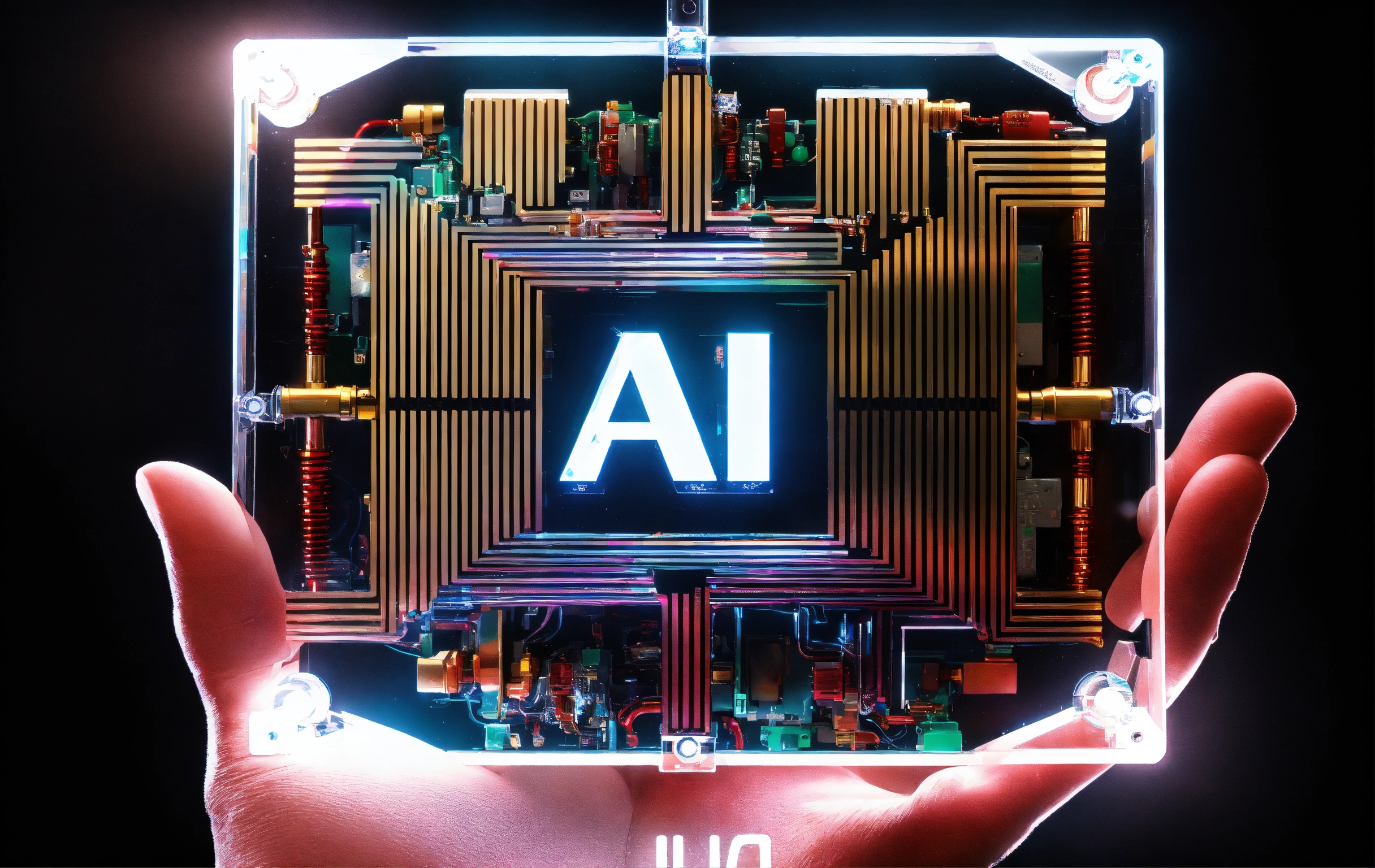There’s a pressing need for understanding the ethical implications of artificial intelligence (AI) as it becomes increasingly integrated into our daily lives. This blog post investigates into the moral complexities that arise when advanced technology intersects with human decision-making, exploring challenges and potential solutions in navigating the ethical landscape of AI. By examining key issues and dilemmas, we aim to shed light on the importance of establishing ethical guidelines to ensure the responsible development and deployment of AI technology.
Defining AI Ethics
The Importance of Ethics in AI Development
Before delving into the complexities of artificial intelligence ethics, it is important to understand the significance of integrating ethical considerations into AI development. As AI technologies continue to advance at a rapid pace, the ethical implications of these innovations become increasingly crucial. Ensuring that AI systems are designed and deployed ethically is important to prevent potential harm and ensure that these technologies benefit society as a whole.
Key Principles of AI Ethics
For developers and policymakers, adhering to key principles of AI ethics is vital in navigating the moral landscape of artificial intelligence. These principles serve as guiding frameworks to promote the responsible and ethical development and deployment of AI technologies. By incorporating principles such as transparency, accountability, fairness, and privacy into AI systems, stakeholders can mitigate risks and enhance the trustworthiness of these technologies.
For instance, transparency in AI systems involves making the mechanisms and algorithms behind these technologies understandable and accessible to users. This transparency helps users comprehend how AI systems make decisions and enables them to hold developers and organizations accountable for any potential biases or errors in the system.
The Moral Landscape of AI
It is important to navigate the moral landscape of artificial intelligence (AI) to ensure that ethical considerations are at the forefront of its development and deployment. As AI systems become more prevalent in our daily lives, addressing moral dilemmas becomes increasingly urgent.
Bias and Discrimination in AI Systems
Landscape: One significant ethical concern in AI revolves around bias and discrimination in algorithms. AI systems are only as unbiased as the data they are trained on, and if the data is biased, the AI will reflect and potentially amplify those biases.
Transparency and Accountability in AI Decision-Making
The transparency and accountability of AI decision-making processes are crucial for ethically sound outcomes. AI systems often operate as ‘black boxes,’ making it challenging to understand how they reach particular conclusions.
Understanding the inner workings of AI systems can help identify and address potential biases and ethical concerns. Transparency in AI decision-making can empower individuals to interrogate and challenge outcomes, fostering accountability in the development and use of AI.
The Role of Human Judgment in AI Ethics
Bias: While AI systems offer unparalleled data processing capabilities, they lack the nuanced ethical judgment and empathy that humans possess. Human oversight and ethical decision-making are critical to ensuring that AI aligns with ethical standards and societal values.
AI and Human Values
Not only is artificial intelligence (AI) transforming industries and economies, but it also raises profound ethical questions regarding human values. As we delegate more decision-making to machines, it becomes crucial to examine how AI interfaces with foundational human principles.
The Impact of AI on Human Dignity and Autonomy
To safeguard human dignity and autonomy in the age of AI, it is imperative to address concerns about privacy, consent, and the potential erosion of personal agency. As AI systems become increasingly adept at predicting human behavior and influencing choices, there is a risk of undermining individual liberty and intrinsic human worth.
AI and the Protection of Human Rights
Human rights are important to ensuring the respect and well-being of all individuals. AI has the power to either uphold or infringe upon these rights, depending on how it is designed and deployed. It is critical to establish guidelines and regulations that prioritize human rights in the development and use of AI technologies.
It is crucial that AI systems are designed and utilized in a manner that respects and upholds human rights, including but not limited to privacy, freedom of expression, and protection from discrimination. By integrating human rights considerations into the fabric of AI ethics, we can strive towards a future where technology empowers individuals without compromising their fundamental freedoms.
The Potential for AI to Promote Human Well-being
Values such as compassion, empathy, and equity are integral to fostering human well-being, and AI has the potential to enhance these values in various domains ranging from healthcare to education. By leveraging AI to augment human capacities and address societal challenges, we can create a more inclusive and sustainable future for all.
Wellbeing encompasses not only physical health but also mental, emotional, and social flourishing. AI applications that prioritize holistic well-being have the capacity to revolutionize personalized medicine, mental health support, and community resilience, ultimately advancing the collective welfare of society.
AI Decision-Making and Ethics
The Ethics of Autonomous Decision-Making
Despite the incredible advancements in artificial intelligence, the ethical implications of autonomous decision-making remain a significant concern. When AI systems are entrusted to make decisions independently, they must align with ethical principles to ensure they do not cause harm or perpetuate biases. Ethics in AI decision-making involves considerations of transparency, accountability, fairness, and the overall impact of these decisions on individuals and society.
The Role of Human Oversight in AI Decision-Making
Autonomous decision-making by AI systems should not negate the necessity of human oversight. Humans must play a crucial role in supervising AI decisions to prevent potentially harmful outcomes. This oversight is necessary to ensure that AI systems operate within ethical boundaries and do not deviate from intended purposes.
This oversight involves creating mechanisms for human intervention in critical decision-making processes by AI systems. Human supervisors can step in when AI decisions raise concerns or when ethical dilemmas arise, providing a necessary check to avoid harmful consequences.
The Challenge of Explaining AI Decisions
DecisionMaking using AI often faces the challenge of explaining how decisions are reached, especially in complex systems like deep learning neural networks. A lack of transparency in AI decision-making can lead to distrust and skepticism from users who are unable to comprehend the rationale behind AI-generated outputs.
Efforts are being made to develop methods that enhance the interpretability of AI decisions, allowing users to understand the reasoning behind AI-generated outcomes. Explainable AI is a growing field that aims to make AI systems more transparent and understandable, bridging the gap between complex algorithms and human comprehension.
AI and the Future of Work
Once again, the advancement of Artificial Intelligence (AI) is causing a significant shift in the job market and the way we work. As AI technologies continue to evolve and improve, they are beginning to have a profound impact on the future of work across various industries.
The Impact of AI on Employment and Job Displacement
An necessary aspect of AI’s influence on employment is its potential to automate tasks traditionally performed by humans, leading to job displacement in some sectors. While AI can streamline processes and increase efficiency, it also poses a threat to certain jobs that are at risk of being replaced by AI-powered systems. This raises concerns about the future employability of individuals in sectors susceptible to automation.
The Need for AI Ethics in the Workplace
The integration of AI into various workplace operations necessitates a crucial consideration of ethical implications. Organizations must prioritize the development and implementation of ethical guidelines and standards to govern the use of AI technologies in the workplace. Neglecting to establish ethical frameworks can result in potential misuse of AI, leading to issues such as biased decision-making, lack of transparency, and infringement of privacy rights.
The ethical use of AI in the workplace is necessary to ensure fairness, accountability, and trust in AI systems. It is imperative for organizations to uphold ethical principles and values to mitigate risks associated with the deployment of AI technologies in work environments.
The Potential for AI to Enhance Human Productivity
Needless to say, AI has the potential to revolutionize the way we work by augmenting human capabilities and enhancing productivity. By automating repetitive tasks and providing valuable insights through data analysis, AI can enable employees to focus on more creative and strategic aspects of their roles. This symbiotic relationship between humans and AI can lead to increased efficiency and innovation in the workplace.
Workplace environments that embrace AI technologies responsibly and ethically can harness the full potential of AI to empower employees and drive organizational success. Leveraging AI to complement human skills can result in a more dynamic and competitive workforce, paving the way for a harmonious coexistence between humans and intelligent machines in the workplace.
Governance and Regulation of AI
The Need for International Cooperation on AI Ethics
Keep the rapid advancements in artificial intelligence (AI) in mind, it is crucial to address the ethical implications and potential risks associated with its development and deployment. International cooperation on AI ethics is necessary to ensure that guidelines and regulations are globally accepted and adhered to. As AI technologies transcend national borders, a unified approach to governance is necessary to address issues such as privacy, bias, accountability, and transparency.
The Role of Governments in Regulating AI
International efforts towards governing AI must involve the active participation of governments to create frameworks that govern the responsible use of AI technologies. Governments play a crucial role in establishing laws and regulations that set ethical standards and ensure compliance. By taking a proactive stance, governments can help mitigate potential risks and promote the development of AI for the greater good.
For instance, governments can implement policies that require transparency in AI systems to prevent algorithmic biases and discrimination. They can also introduce measures to hold organizations accountable for the decisions made by AI systems under their control.
The Importance of Industry Self-Regulation in AI Ethics
Role self-regulation plays in the ethical development and deployment of AI technologies cannot be overstated. While government regulations are necessary, industry players must also take responsibility for the ethical implications of their AI systems. Industry self-regulation can help establish best practices, standards, and guidelines that promote ethical AI development and use, fostering trust among users and stakeholders.
Ethics in AI is a shared responsibility that requires collaboration between governments, industry, researchers, and the public. By working together to establish clear governance frameworks and ethical guidelines, we can navigate the moral landscape of AI and ensure that artificial intelligence continues to benefit society while upholding fundamental ethical principles.
Conclusively
Artificial Intelligence Ethics is a crucial topic that requires careful consideration as we continue to develop AI technology. Navigating the moral landscape of AI involves addressing a myriad of complex ethical dilemmas, such as privacy concerns, biases in algorithms, and the potential impact on society. By integrating ethical principles early in the design and development of AI systems, we can strive to create a more responsible and beneficial future for AI technology.
As we progress into an era where AI plays an increasingly significant role in our daily lives, it is imperative to prioritize ethical considerations to ensure that AI is used in a way that aligns with our values and respects human rights. By engaging in ongoing discussions, conducting research, and implementing policies that promote ethical AI practices, we can navigate the moral landscape of AI and shape a future where AI enhances human well-being and fosters a more inclusive and equitable society.
FAQ
Q: What is the importance of artificial intelligence ethics?
A: Artificial intelligence ethics is crucial in navigating the moral landscape of AI to ensure that the development and deployment of AI technologies align with ethical principles and values. It helps address important issues such as bias, privacy, transparency, and accountability in AI systems.
Q: How does the concept of bias come into play in artificial intelligence ethics?
A: Bias in AI systems can have harmful consequences, leading to unfair treatment and discrimination. Ethical considerations in AI involve identifying and mitigating biases in algorithms and data to ensure that AI technologies promote fairness and equality.
Q: What are some key principles to consider in artificial intelligence ethics?
A: Some key principles in artificial intelligence ethics include transparency, accountability, privacy, and fairness. These principles guide the design and development of AI technologies to prioritize ethical considerations and ensure that AI systems serve the common good.





